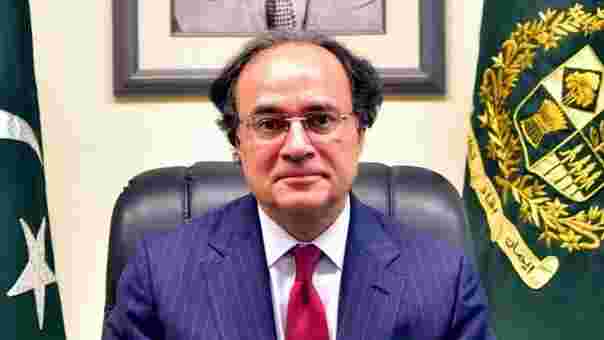Islamabad, June 17, 2025 — Finance Minister Muhammad Aurangzeb has termed the ongoing discussions with the United States regarding tariffs as “very constructive,” signaling progress toward a stronger bilateral economic relationship.
Speaking at the “National Workshop on Transitioning to Defined Contribution Pension Schemes,” organized by the Securities and Exchange Commission of Pakistan (SECP), Aurangzeb emphasized that both nations are moving in the right direction to achieve greater alignment on trade and tariff matters.
Aurangzeb shared that a recent dialogue held with the US Secretary of Commerce on tariffs was particularly encouraging, underscoring shared goals of creating competitive advantages and strengthening long-term strategic cooperation. He added that ongoing efforts to revise Pakistan’s tariff structure reflect a major reformative push aimed at making local industries more efficient and export-oriented.
“Tariffs have long been a barrier to industrial growth in Pakistan,” Aurangzeb noted. “This year, we’ve embarked on a path to gradually dismantle this wall of protectionism. We want domestic industries to thrive under competitive market dynamics and expand their footprint globally.”
Aurangzeb highlighted that meaningful tariff reforms will bolster Pakistan’s ability to engage constructively with key international partners like the US. He stated that these reforms were part of a broader package that includes restructuring taxation, reforming energy policy, and improving the performance of state-owned enterprises (SOEs).
Addressing fiscal challenges, Aurangzeb stated the government has taken measures to reduce public debt servicing through declining policy rates and disciplined fiscal management. He underlined the importance of liability management to create fiscal space for critical development sectors.
Aurangzeb also pointed to pension reform as an essential pillar of fiscal sustainability. Since July 1, 2024, all new federal government employees have been enrolled in a defined contribution scheme, marking a significant departure from the legacy defined benefit system. The minister said this transition would help curtail ballooning pension liabilities, which now exceed Rs1 trillion annually.
In the FY 2025–26 Federal Budget, the government proposed a 7% increase in pensions aligned with inflation, while introducing a 5% tax on pension income above Rs10 million—a step Aurangzeb described as equitable and necessary.
Commenting on the broader regional landscape, Aurangzeb acknowledged ongoing geopolitical tensions and stressed the importance of maintaining strategic reserves and price monitoring across asset classes. He reaffirmed the government’s commitment to proactive risk management to preserve economic and financial stability.
The finance minister concluded that tariff reforms, fiscal discipline, and external engagement underpinned Pakistan’s broader vision for sustainable economic growth and resilience.
